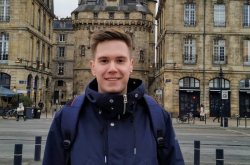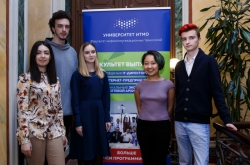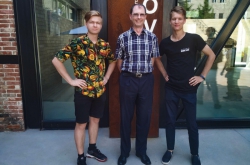Please tell us more about what you did as part of the internship.
The Terahertz Technologies in Biomedicine course is a multidisciplinary one as it covers a wide range of topics from the fields of biology and optics, such as the Fourier transform, spectrometers, and estimation of uncertainty in the time domain. This variety allows for the most comprehensive presentation of knowledge on terahertz technologies and their applications in the treatment of patients.
The course consisted of lectures and independent work in the laboratory. We did learn a lot in these two weeks, for example, how to adjust terahertz sources, measure tumoral samples, identify noise levels and valid frequency bands, and so on.
How will all the knowledge you acquired at ITMO help you in your research?
The Changchun University of Science and Technology we are part of conducts research in optics and biology, but without linking these fields with one another. This course gave us a valuable opportunity to gain new insight into multidisciplinary approaches, also allowing us to gain crucial subject-specific knowledge and hone the skills necessary for research in this field.
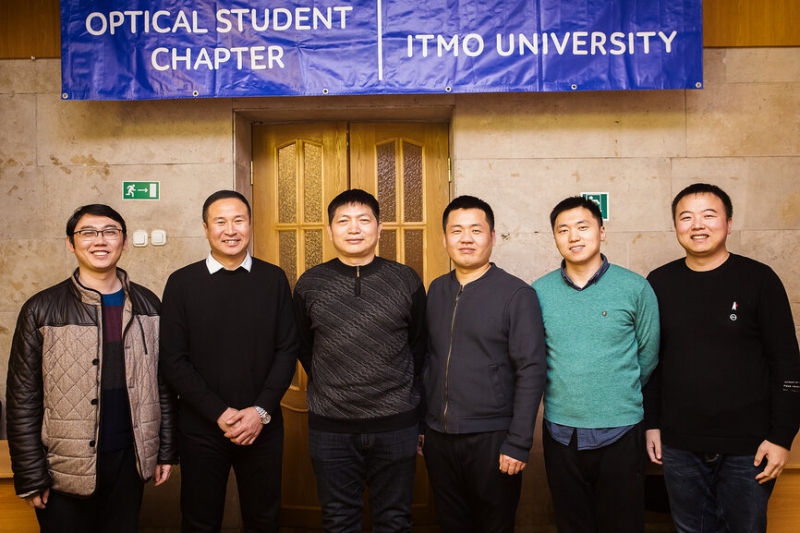
Understanding the importance of this scientific field, in the future, we want to launch a terahertz medicine-oriented Master’s program back home in China. This ITMO University internship was the first step on the road to our goal.
Is there anything in the course you would like to improve for future participants to have an even better experience?
We’d love to see the duration of the course increased. As per the class schedule, we were spending eight hours in the University every day after our lunch, doing experiments. As much as they were useful, it was rather hard for us to process all that new information we were getting with such an intensive workload. We don’t think that will suit regular students.
Apart from that, it would be great if the course coordinators contacted Chinese students before their arrival in St. Petersburg, sending suggested reading lists and theory they need to go over. This would help participants prepare for their studies.
Lastly, we also would have liked to be given an opportunity to share about our place of work and study. Over the course of the two weeks we spent at ITMO, we were acquainting ourselves with the University and its staff, but there wasn’t enough time for us to tell our hosts about our own research. Even as little as one presentation would contribute to forming a sense of a real international exchange and getting feedback from students. We see it as an additional way to advance cooperation between our universities.
But for the most part, we are very grateful to the laboratory’s staff. They passed on their knowledge in a very competent way and helped us navigate our way through the city. They also saw it as their priority to diversify our cultural program, which thanks to them consisted not only of the standard museum tours but also a trip to the St. Petersburg Stadium to see a football match.
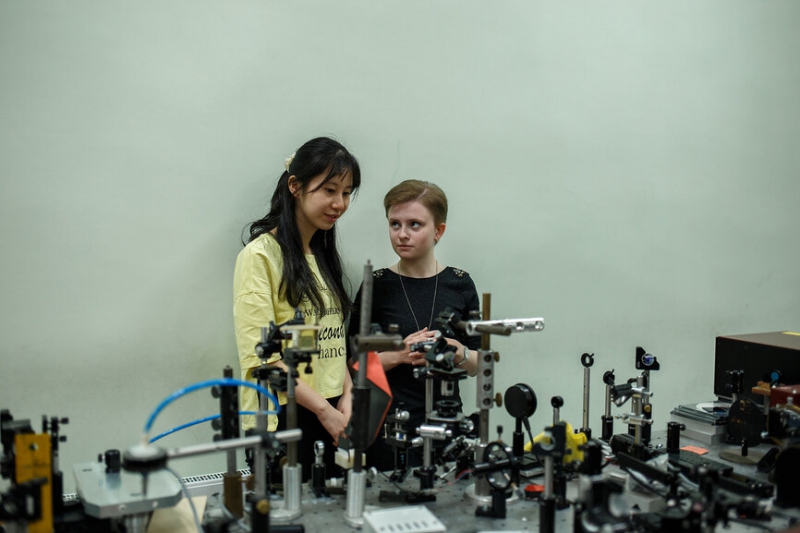
Having familiarized yourself with education and research process at ITMO University, did you find it in any way different to what you have in China? For instance, maybe it’s more individualistic?
We didn’t notice any significant differences. As for the individualistic part, it all depends on a scientific field. If you deal with optical theory, you can’t go about changing textbook axioms. Students in language studies and economics do have closer contact with tutors and present their research more often. Nevertheless, every Chinese student, regardless of their major, is allocated an individual task they need to work on for the month, if not semester, ahead. And there’s no given solution, everything is up to you. As far as we can tell, you have a similar thing in Russia in the form of term papers.
Can ITMO University students see the education process at the Changchun University of Science and Technology for themselves?
Yes, there is an exchange program between our universities that could grant them this opportunity. We also plan to expand on our cooperation and open a double-degree Master’s program with ITMO in the future.



